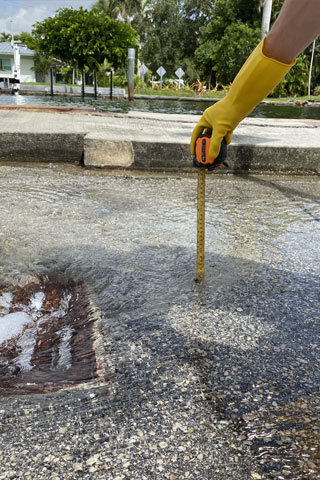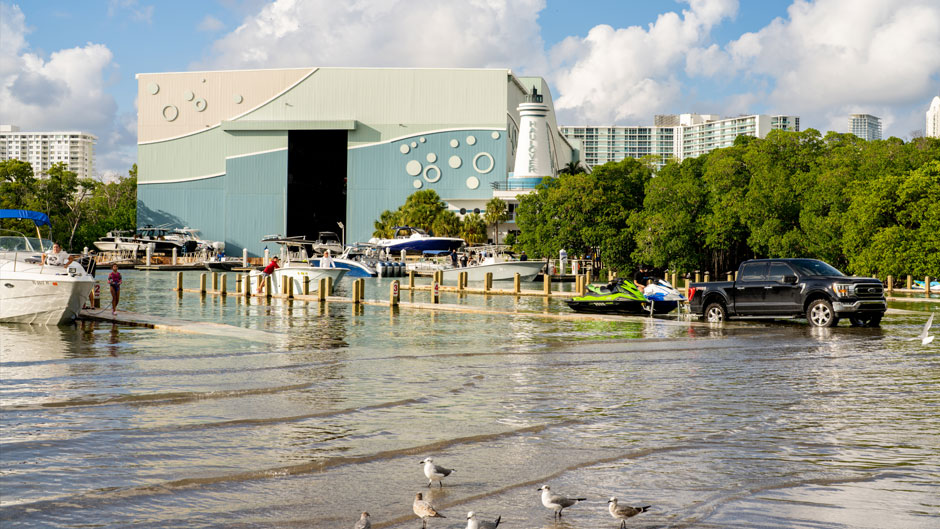It will take more than scientists studying the melting of glaciers and rising greenhouse gas emissions to limit global warming to 1.5 degrees Celsius above preindustrial levels.
Schoolteachers, bus drivers, warehouse workers, lawyers, doctors, and even grade school kids—the very people who live in neighborhoods impacted by rising seas and extreme heat—will also have to help lead the fight against climate change.
And that is why the University of Miami is part of a new initiative that trains citizens to collect climate data in Miami-Dade County that will be analyzed and eventually used to enact policies that address sustainability across the region.

The Southeast Florida Regional Citizen Science Climate Action Network, or CSCAN, operates on a hyperlocal level, arming residents with tape measures to determine the depth of water in flooded areas, refractometers to measure the salinity of the water, coliform kits to detect the presence of bacteria, and heat sensors to measure temperature and humidity levels at locations like transit stops, crosswalks, and parks.
They record their readings via a smartphone app, transmitting the information to University of Miami oceanography and climatology students who are analyzing the data.
Florida International University and Miami Dade College are partners with the University of Miami on the initiative. It is one of 12 finalists for the Climate Challenge Cup, an international competition that showcases U.K.- and U.S.-based civic research partnerships between organizations and local communities to combat climate change.
Winners will be announced November 10 during a global livestreamed event at the COP26 United Nations Climate Change Conference in Glasgow, Scotland.
“It’s critical that our climate adaptation efforts be connected to people’s lives in their communities,” said Amy Clement, a professor of atmospheric sciences at the Rosenstiel School of Marine and Atmospheric Science, who is spearheading the University of Miami’s component of the project.
“The way that people are experiencing climate change can be quite different from what we learn from climate models or from monitoring stations,” she said. “The data that we’re collecting is getting us much closer to what people really need.”
Since CSCAN’s launch, citizen scientists have made about 300 flood observations and taken more than half a million temperature readings—data that is being converted to statistics and maps used by community partners like the Miami-Dade Office of Resilience.
The cities of Miami and Miami Beach are also partnering on the project, which is based on a citizen science flood-monitoring event called Sea Level Solutions Day.
Clement’s graduate and undergraduate students, some of whom are also participating in data collection, have discovered some interesting results—among them, that weather readings taken at Miami International Airport are not always an accurate gauge of how hot and how humid it is in the city.
“Airport temperature sensors are used for official guidance, especially for heatwaves and heat emergencies,” said Marybeth Arcodia, a Ph.D. candidate in atmospheric sciences at the Rosenstiel School, who is one of the students helping to analyze CSCAN temperature data. “But what we’ve found is that the airport is just not a good proxy for heat throughout the entirety of Miami.”
Readings taken from sensors placed at different locations all around the county show much higher temperature and humidity levels, making it possible for emergency managers to issue heat warnings and to allocate resources where they are needed most, Arcodia noted.
“Projects like CSCAN are providing the tools to get people engaged, not just in identifying problems but thinking about a pathway to solutions,” Clement said.

